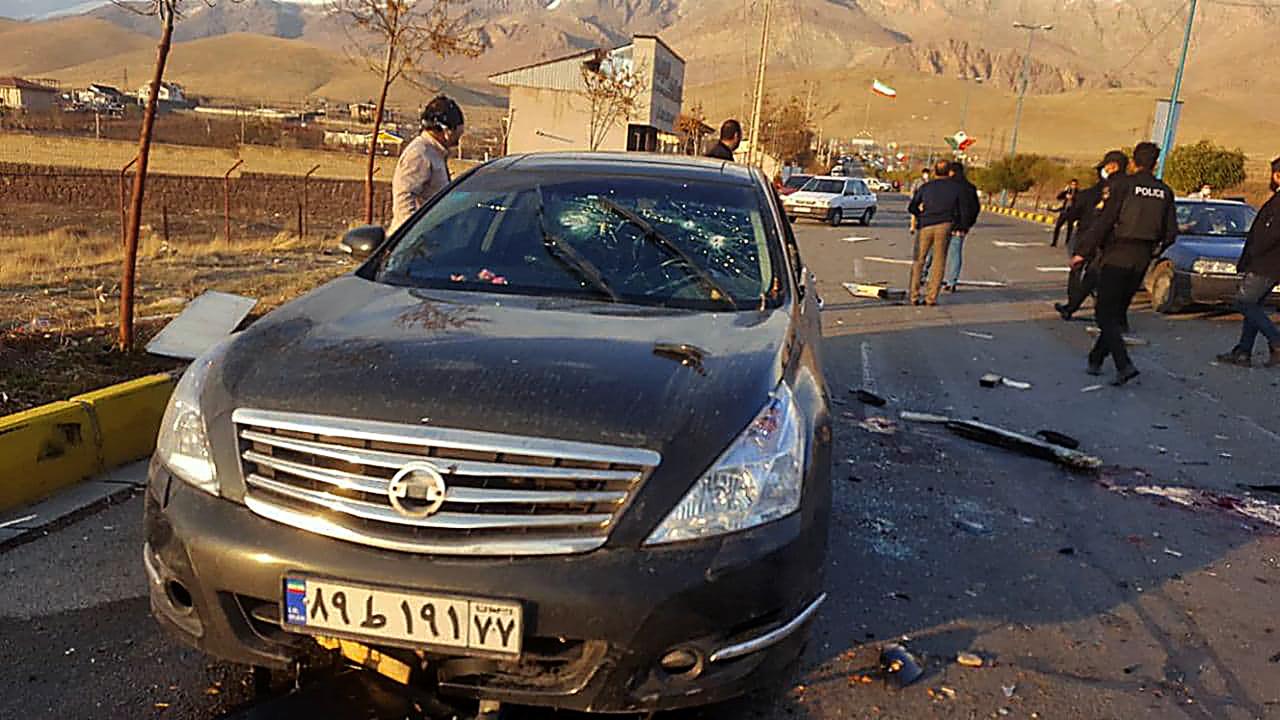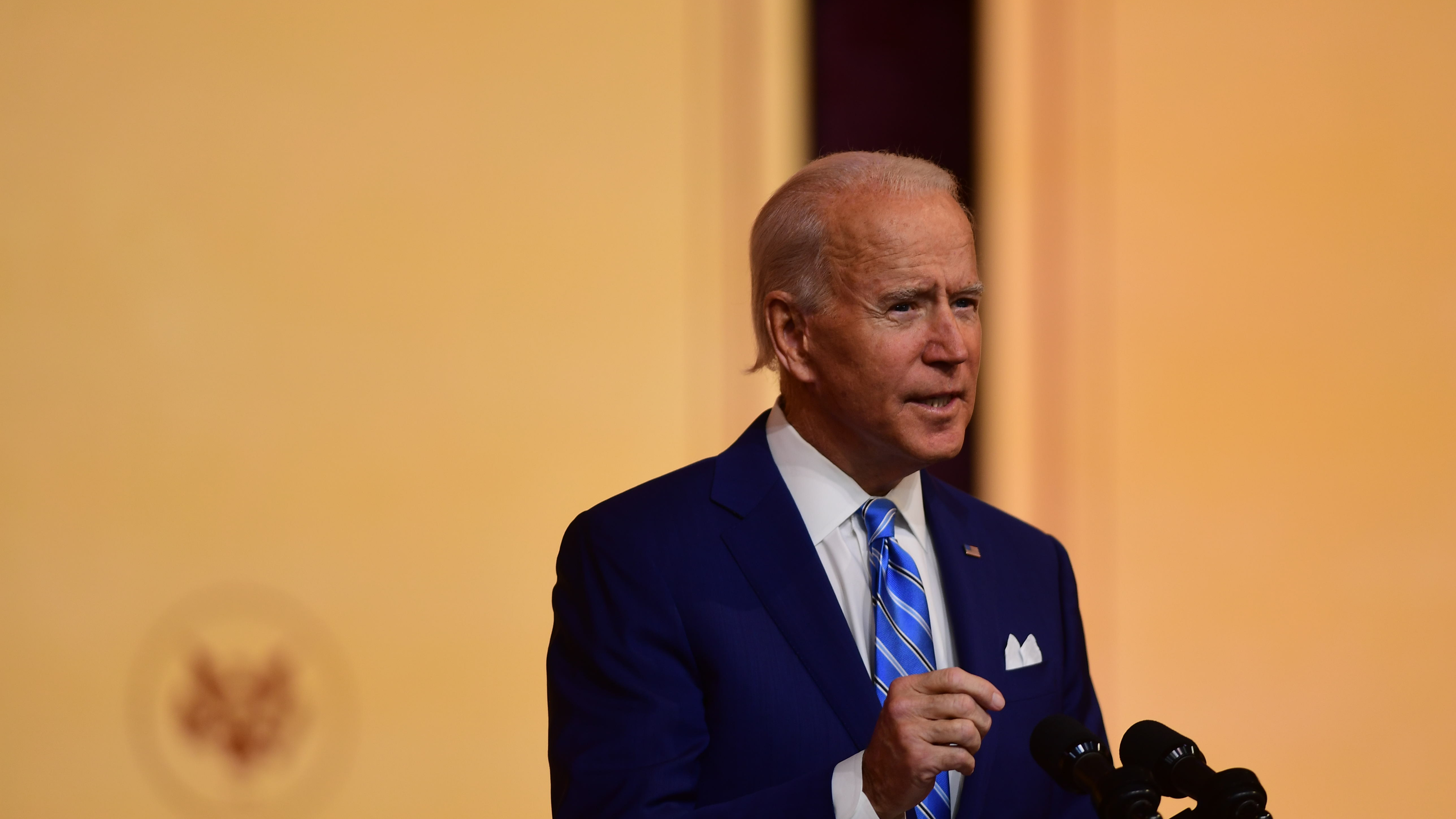
Editor's Note: Wang Jin is a research fellow of Charhar Institute in China and an associate Professor from Northwest University in China. The article reflects the author's opinion, and not necessarily the views of CGTN.
The assassination of Iranian top nuclear scientist Mohsen Fakhrizadeh, and the killing of Iranian Islamic Revolutionary Guards Corps (IRGC) top commander Muslim Shahdan, suggest increasing tensions in the Middle East. This could mean risk of a regional conflict or war, and the possibility of total confrontations between Israel, U.S. and Iran should not be excluded.
Given the imminent end of Donald Trump's presidency, the tension between Israel and Iran becomes glowingly salient. For Israel, President-elect Biden might change the geopolitical outlook that Israel favors. On the one hand, Biden has ties and connections channel with Palestinians and Israeli left-wing groups, both of which call for Israel's suspension of construction of Israeli Jewish settlements in the West Bank and East Jerusalem. For the dominant right-wing social groups and political parties in Israel, especially the Likud Party led by Israeli Prime Minister Benjamin Netanyahu, Biden's moderate attitudes towards Palestinians might not be good news for right-wing Israeli efforts to annex the West Bank.
On the other hand, Biden promises to negotiate and talk directly with Iran to seek a new "nuclear deal." Direct communication and the suspension of Washington's sanctions against Iran, from Israel's perspective, might strengthen Iran's military and strategic capabilities to impose more threats against Israel, and significantly weaken Iran's national capabilities and constrain Tehran's pressure against Israel. Once Biden eases the sanctions against Tehran and bring Iran back to the international community, Israel might face more hostile and negative regional circumstances.

President-elect Joe Biden delivers a Thanksgiving address at the Queen Theatre on November 25, 2020 in Wilmington, Delaware. /Getty
President-elect Joe Biden delivers a Thanksgiving address at the Queen Theatre on November 25, 2020 in Wilmington, Delaware. /Getty
For Israeli Prime Minister Benjamin Netanyahu, the time before Biden takes office might be his valuable opportunity to change the nature of Middle East regional geopolitics. Netanyahu describes himself as "Mr. Security", and labels himself as the only Israeli leader capable of containing Iran's regional influence and cutting Iran's support to Israel's neighboring threats, Hezbollah in Lebanon, Hashd al-Sha'abi in Iraq and Hamas in Gaza.
Therefore, in the next weeks, Israel might design and implement more attacks against Iran. Iranian military forces and Tehran-back military groups in Syria, Iran's top commander from the IRGC, and even Iranian important military and strategic locations, would all become Israel's targets. Once Iran counterattacks, Israel might implement total confrontations against Tehran and even bring the U.S. into the direct conflict. If Iran maintains restraint, Israel will construct better regional security environment through eliminating Tel Aviv perceived "threats."
Iran's rational and restrained attitudes come from Tehran's interpretation of the possible transformation of Washington's policy to Iran under Biden time next year. Iran believes Biden might soften Washington's hostilities towards Tehran and implement negotiation and contacts with Iranian officials to facilitate an agreement accepted by both Washington and Tehran, as what happened in 2015. For many Iranian analysts, time will be on their side, while the patience should be highly needed under the intensive and sensitive time.
However, to be always rational and restrained is not easy. The killings of Iranian top officials, especially the losses of both commanders and soldiers from the IRGC, might not be accepted by Iranian hardliners. If Israel and U.S. continue to launch attacks against the IRGC, the anger and dissatisfaction from Iranian military groups and other hardliner blocs would take measures to counter attack, and further increase the risks of total confrontations between Israel and Iran.
Although the total confrontation between Israel and Iran might not be likely, it is possible, especially given the coming of the end of the Trump era.
(If you want to contribute and have specific expertise, please contact us at opinions@cgtn.com.)

